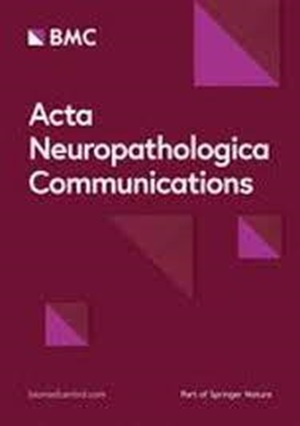中枢神经系统肿瘤患者脑脊液中循环肿瘤 DNA 的实际应用经验
IF 6.2
2区 医学
Q1 NEUROSCIENCES
引用次数: 0
摘要
肿瘤样本中基因改变的特征描述已成为许多人类癌症的标准做法,以实现更精确的疾病分类并指导靶向疗法的选择。脑脊液(CSF)可作为中枢神经系统(CNS)癌症患者的肿瘤 DNA 来源。我们在一家医院实验室使用经 FDA 授权的平台(MSK-IMPACT™)对 711 名患者的脑脊液循环肿瘤 DNA(ctDNA)进行了全面分析。我们在 489 份/922 份(53.0%)有临床记录的中枢神经系统肿瘤 CSF 样本中发现了基因改变。无中枢神经系统肿瘤患者的 85 份 CSF 样本均未检测到 ctDNA。在整个 AACR GENIE 队列中,临床上可操作的体细胞改变分布与肿瘤类型特异性改变一致。对同一患者的 CSF ctDNA 进行重复检查可发现克隆进化和耐药机制的出现。在常规医院环境中通过微创腰椎穿刺采集的 CSF 下一代测序可为大部分中枢神经系统肿瘤患者提供临床可操作的癌症基因型信息。本文章由计算机程序翻译,如有差异,请以英文原文为准。
Real-world experience with circulating tumor DNA in cerebrospinal fluid from patients with central nervous system tumors
The characterization of genetic alterations in tumor samples has become standard practice for many human cancers to achieve more precise disease classification and guide the selection of targeted therapies. Cerebrospinal fluid (CSF) can serve as a source of tumor DNA in patients with central nervous system (CNS) cancer. We performed comprehensive profiling of CSF circulating tumor DNA (ctDNA) in 711 patients using an FDA-authorized platform (MSK-IMPACT™) in a hospital laboratory. We identified genetic alterations in 489/922 (53.0%) CSF samples with clinically documented CNS tumors. None of 85 CSF samples from patients without CNS tumors had detectable ctDNA. The distribution of clinically actionable somatic alterations was consistent with tumor-type specific alterations across the AACR GENIE cohort. Repeated CSF ctDNA examinations from the same patients identified clonal evolution and emergence of resistance mechanisms. ctDNA detection was associated with shortened overall survival following CSF collection. Next-generation sequencing of CSF, collected through a minimally invasive lumbar puncture in a routine hospital setting, provides clinically actionable cancer genotype information in a large fraction of patients with CNS tumors.
求助全文
通过发布文献求助,成功后即可免费获取论文全文。
去求助
来源期刊

Acta Neuropathologica Communications
Medicine-Pathology and Forensic Medicine
CiteScore
11.20
自引率
2.80%
发文量
162
审稿时长
8 weeks
期刊介绍:
"Acta Neuropathologica Communications (ANC)" is a peer-reviewed journal that specializes in the rapid publication of research articles focused on the mechanisms underlying neurological diseases. The journal emphasizes the use of molecular, cellular, and morphological techniques applied to experimental or human tissues to investigate the pathogenesis of neurological disorders.
ANC is committed to a fast-track publication process, aiming to publish accepted manuscripts within two months of submission. This expedited timeline is designed to ensure that the latest findings in neuroscience and pathology are disseminated quickly to the scientific community, fostering rapid advancements in the field of neurology and neuroscience. The journal's focus on cutting-edge research and its swift publication schedule make it a valuable resource for researchers, clinicians, and other professionals interested in the study and treatment of neurological conditions.
 求助内容:
求助内容: 应助结果提醒方式:
应助结果提醒方式:


